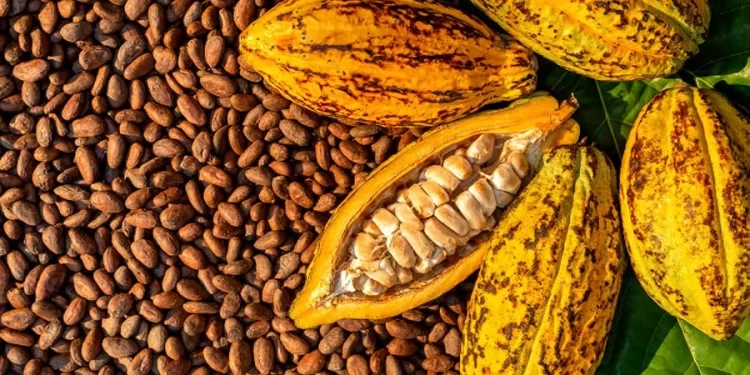A cocoa farmer in the Mpohor District is demanding the immediate exhumation of the remains of an illegal miner buried on his farm by police officers.
The incident, which has sparked outrage and raised questions about police conduct, occurred on January 17, 2025, at Nyame Na Onim, following the death of a galamseyer (illegal miner) known as Kwame Rasta.
Kwame Rasta lost his life after falling into an abandoned mining pit in the area. Instead of transporting the body to a mortuary or notifying the deceased’s family, police officers from the Mpohor District Police Command, along with local opinion leaders, decided to bury him on Kwaku Kropa’s cocoa farm. The decision has left the farmer distraught and seeking justice.
In an exclusive interview, Kropa recounted the events leading to the burial. He explained that he was away from his farm when his caretaker, who oversees his rubber plantation, called to inform him about the incident. According to Kropa, the caretaker told him that police officers and community elders had retrieved the body and intended to bury it on his farm, citing the body’s advanced state of decomposition as a reason for not taking it to the mortuary.
“I refused initially, but my caretaker said the police threatened to leave the body on my farm if I didn’t comply,” Kropa said. “Feeling pressured, I reluctantly agreed, thinking they wouldn’t go through with it. But three days later, I found out they had buried the body on my farm. This is unacceptable. My farm is not a cemetery, and I demand that the body be exhumed immediately.”
Kwame Ahanta, a local farmer who assisted the police in retrieving the body, provided further insight into the incident. He explained that the deceased had been working with a group of illegal miners when he fell into the pit and drowned. Ahanta and others informed the community leader and the site owner, Iddrisu, who then contacted the Mpohor police station.
“When the police arrived, they took pictures of the body and observed its condition,” Ahanta said. “They then ordered us to bury the body on the spot. We had no choice but to comply.”
The decision to bury the body on Kropa’s farm has raised concerns about police procedures and the potential health risks posed by the burial site’s proximity to the Nkwer River, a water source for nearby communities. Assakae Busuapayin Nana Kojo Sackey, a traditional leader, expressed shock at the police’s actions, emphasizing the cultural and spiritual implications of an improper burial.
“In our tradition, failing to perform the necessary burial rituals can have serious consequences,” Sackey said. “Moreover, burying the body near a river that supplies water to several communities is irresponsible and could pose health risks.”
When contacted for comment, Superintendent William Gyamfi, the Mpohor District Police Commander, claimed he was unaware of the incident and requested time to investigate. This response has raised further questions, given the eyewitness accounts of Kwame Ahanta and Kwaku Kropa, both of whom confirmed police involvement in the burial.
The incident has highlighted broader issues surrounding illegal mining activities in the region, including the dangers faced by galamsey operators and the environmental and social impacts of their work. It has also cast a spotlight on the conduct of law enforcement officials and their handling of such cases.
As Kwaku Kropa awaits action from the authorities, the case has drawn attention to the need for proper protocols in dealing with fatalities in illegal mining operations and the importance of respecting landowners’ rights. For now, the farmer’s demand for the exhumation of Kwame Rasta’s remains remains unresolved, leaving a cloud of uncertainty over his cocoa farm and the community at large.










Discussion about this post